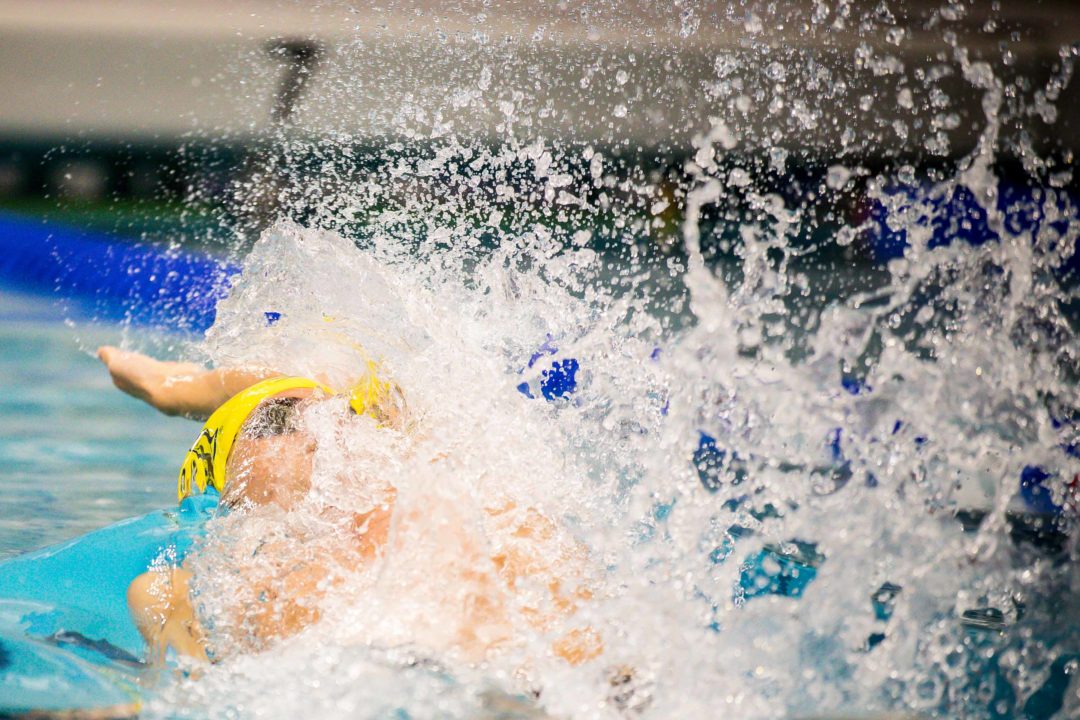SwimSwam welcomes reader submissions about all topics aquatic, and if it’s well-written and well-thought, we might just post it under our “Shouts from the Stands” series. We don’t necessarily endorse the content of the Shouts from the Stands posts, and the opinions remain those of their authors. If you have thoughts to share, please send [email protected].
This “Shouts from the Stands” submission comes from Ale Carrizo, a coach for SC Poseidon in Koblenz, Germany.
What happens when we succeed? How does our body behave? How does our brain process and “save” this new input? What about defeat? How does our body react to it? And our brain?
One cannot exist without the other – this shows us the intimate relationship between both of these experiences
External and internal factors may not only alter the perception for victory and/or defeat, they are the most important and influential networks running the victory/defeat regulation system.
In competitive sports there can only be one winner! Or at least that is what I was always told to believe. After many years participating in competitive sports, this simple rule expanded in itself to different versions. The first question that emerges:
Are winning and victory the same thing? Therefore, are losing and defeat then also the same? Can I win and lose at the same time? Do I know what victory feels like? How about defeat?
The winner in competitive swimming is determined through time, which means, person A who can swim a preset distance in the fastest time (always of course within the rules) wins. We could then assume that, Person B who swims a preset distance in the slowest time… loses.
Different outcomes, same results:
1. Win-win
External factors: “A” wins a gold medal = winner (temporary victory experience). The winner is publicly recognized and given a gold medal and a title. Cheering, applause and joy (from family, friends, teammates, Coach, public, etc) are received as new and positive input for the winner.
Internal factors: “A” swims a preset distance in the fastest time (personal best) = winner=victory! Pride, joy and satisfaction are some of the feelings that may internally confirm a victory. And although “A‘s“ body has experienced its best and most intense muscular performance, somehow muscle fatigue, breathing difficulties and or any signs of discomfort are basically blocked because of the hormonal victory outburst (Dopamine release-the happy hormone).
2. Win-lose
External factors: : “A“ wins a gold medal = winner (temporary victory experience). The winner is publicly recognized and given a gold medal and a title. Cheering, applause and joy (from family, friends, teammates, Coach, public, etc) are received as new and positive input for the winner.
Internal factors: “A“ swims a preset distance in the fastest time (NOT personal best)=winner=(victory or defeat?). Pride, joy and satisfaction are some of the feelings that may or may not internally confirm a victory. “A‘s“ body has not experienced its best and most intense muscular performance, somehow muscle fatigue, breathing difficulties and or any signs of discomfort are facilitated because of the hormonal defeat (Dopamine is not released). Instead, our pain receptors on joints, muscles and bones are somehow sensitized, leading to possible breathing difficulties and eventually exacerbated pain.
3. Lose-win
External factors: : “A“ does not win a gold medal = loser (temporary defeat experience). The loser is not publicly recognized. Cheering, applause and joy (from family, friends, teammates, Coach, public, etc) are received as new and positive input for the “loser“. No cheering, applause nor support, are received as a new negative input.
Internal factors: “A“ swims a preset distance in the fastest time (personal best)= victory! Pride, joy and satisfaction are some of the feelings that may internally confirm a victory. And although “A‘s“ body has experienced its best and most intense muscular performance, somehow muscle fatigue, breathing difficulties and or any signs of discomfort are basically blocked because of the hormonal victory outburst (Dopamine release-the happy hormone).
4. Lose-lose
External factors: : “A“ does not win a gold medal = loser (temporary defeat experience). The loser is not publicly recognized. Cheering, applause and joy (from family, friends, teammates, Coach, public, etc) are received as new and positive input for the “loser“. No cheering, applause nor support, are received as a new negative input.
Internal factors: “A“ swims a preset distance in the slowest time (NOT personal best)=loser=defeat. Pride, joy and satisfaction are not internally confirmed as a victory. “A‘s“ body has not experienced its best and most intense muscular performance, somehow muscle fatigue, breathing difficulties and or any signs of discomfort are facilitated because of the hormonal defeat (Dopamine is not released). Instead, our pain receptors on joints, muscles and bones are somehow sensitized, leading to possible breathing difficulties and eventually exacerbated pain.
The importance of accepting and recognizing the different meanings for victory, winning, defeat and losing will improve our capacity to identify them correctly and submit a better solution if needed. “Small wins“ lead to bigger ones and of course eventually to a victorious state of mind!
Recognizing defeat allow us to take counter measures in order to leave or change a defeated state of mind. We shouldn’t fear defeat nor neglect victory. Embrace them and learn how to deal better with them.
This may sound all somehow insane, how could we possibly lose and win at the same time? But if it is insanity, as Albert Einstein said: the definition of insanity is doing the same thing over and over (training) and expecting different results (victory!).
Then we swimmers are most definitely INSANE =)
